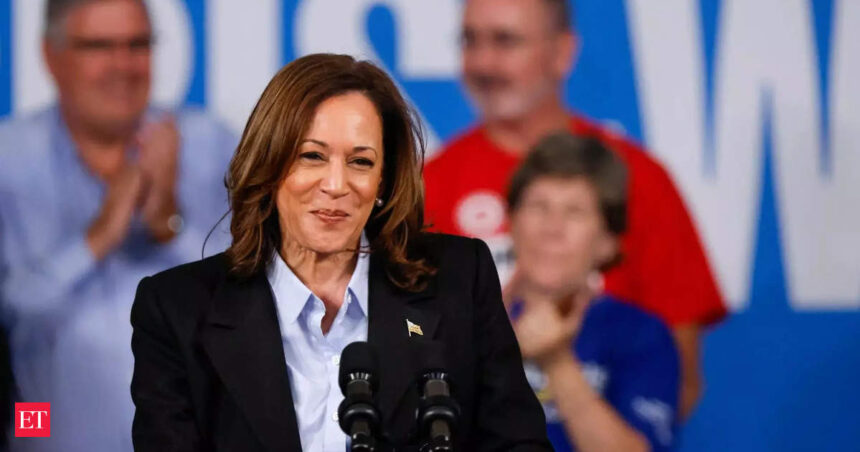Also read: Hollywood lobs bombshell in US presidential race with Donald Trump biopic
Many see the possibility of Harris’s victory as a victory for American Indians, although Harris rarely talks about his Indian roots.
How Harris sees the Indian connection
Harris has rarely spoken of her Indian roots though she has spoken of her Indian mother often. In her speech formally accepting the Democratic Party’s nomination for president, she spoke about her mother, Shyamala Gopalan, but not about India, the country she visited as a child. Chennai is the hometown of Harris’ mother. The year 2009 was the last time he visited Chennai with his mother’s ashes to scatter in the waters of the Indian Ocean.
With a multi-racial background, Harris has been portrayed as more black than her Asian connections. During a Q&A event at the National Association of Black Journalists, Donald Trump said that Harris changed his racial background from Indian to black.
One reason Harris’s India ties may not be a political factor is that he is not a prominent part of his public persona, Sreeram Sundar Chaulia, dean of the Jindal School of International Affairs, told Bloomberg. “Unlike say Rishi Sunak in England, for example, who is very open about sharing his Indian and Hindu roots,” he said. However, Harris’ African and Caribbean heritage — her father is from Jamaica — is a more visible part of her public identity, Chaulia said. some Indian Americans know him, but not many Indians see him as an American with Indian roots and there is less enthusiasm in India about him running for president than when he ran for vice president because Indians expect what that means. for them to have a woman with Indian color as the vice president of the USA.
It is Harris’s attitude that could trouble India
Although Harris as vice president largely avoided foreign policy issues, his tenure did not inspire confidence in India because he has leaned toward sections that portray India as a violator of human rights and lacking in democracy.
In 2019, Harris came out in support of Indian-American Congresswoman Pramila Jayapal, who was seen as baiting India for anti-Indian attitudes. Harris criticized the Indian government for excluding him from a meeting with foreign minister S Jaishankar during his visit to the US. However, the minister met with the House Foreign Relations Committee, a Congressional panel of which Jayapal was not a member, and he tried to impose himself on the engagement. “It is wrong for a foreign government to tell Congress what members are allowed to do in meetings on Capitol Hill,” he wrote in X, saying he stood with Jayapal and also liked his colleagues in the House.
Harris’ support for Jayapal reflects his close alliance with leftists in his party who oppose India on human rights and minority issues.
However, Harris’ victory could cause India to worry. He not only aligns with the anti-Indian left in his party, but also supports Kashmiri separatism. “We have to remind Kashmiris that they are not alone in the world. We keep track of the situation. There is a need to intervene if the situation demands,” Harris said in a statement in 2019 after India revoked Art. 370. He sought the presidential nomination of the Democratic Party at that time. Kashmir is a very sensitive territorial issue for India. , and a US president who disagrees with India’s territorial rights could be a big challenge for the Indian government.
Although Harris is close to anti-India party members, he is not known as a foreign policy expert and may not allow his past statements to dictate Indian policy if he wins. However, his lack of background and experience in foreign policy may mean that he will not be able to take independent decisions and be guided by state officials and activists. If he wins, he will be president at a time when the US and Canada openly support Khalistani separatists. As president, he will have to keep the anti-India lobby at bay to build the India-US relationship that has grown so much during the Biden presidency.




